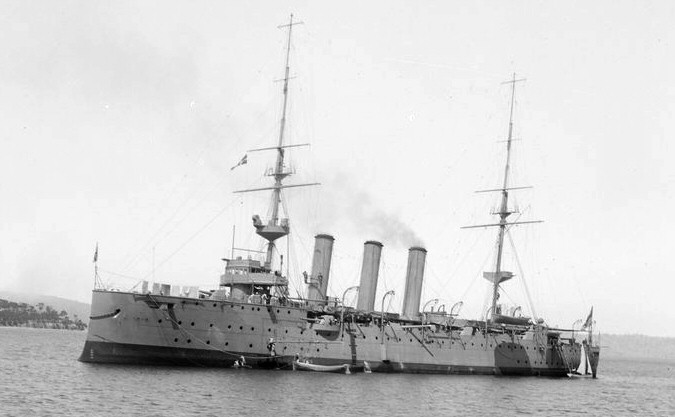March 24th has been a witness to a remarkable array of historical events that have shaped societies, economies, and cultures around the world.
From pivotal environmental disasters and scientific breakthroughs to transformative political acts and technological advancements, this day encapsulates moments of tragedy, triumph, and innovation.
In commemorating these events, we explore the profound influence they have had on the course of human history, underscoring the complexity and interconnectivity of our global narrative.
March 24th Events in History
1603: James VI of Scotland becomes James I of England and Ireland, upon the death of Elizabeth I
This event marked the unification of the crowns of England, Scotland, and Ireland under a single monarch, James VI of Scotland, who ascended to the English and Irish thrones as James I after the death of Queen Elizabeth I.
Also Read: March 23 – On this Day in History
This was a significant historical moment known as the Union of the Crowns, although the three kingdoms remained separate sovereign states, sharing only a monarch until the Acts of Union 1707.
1603: Tokugawa Ieyasu is granted the title of shogun from Emperor Go-Yozei, and establishes the Tokugawa shogunate in Edo, Japan
Tokugawa Ieyasu, a powerful daimyo of the Edo domain (modern-day Tokyo), was granted the title of shogun by the Japanese Emperor Go-Yozei.
This event marked the beginning of the Tokugawa shogunate, also known as the Edo period, a time when Japan was ruled by the Tokugawa family for over 250 years.
The shogunate implemented a rigid class structure and isolationist foreign policy, significantly influencing Japan’s social, political, and economic life.

1663: The Province of Carolina is granted by charter to eight Lords Proprietor in reward for their assistance in restoring Charles II of England to the throne
After the restoration of Charles II to the throne of England, the king granted the land of Carolina (named in honor of his father, Charles I) to eight of his loyal supporters, known as the Lords Proprietors.
Also Read: March 25th Events in History
This large territory, which later became the states of North Carolina, South Carolina, and parts of Georgia, was meant as a reward for their support during his exile.
The Lords Proprietors had full sovereignty over the land, barring allegiance to the English crown, which significantly impacted the development and governance of the region.
1765: The Kingdom of Great Britain passes the Quartering Act, requiring the Thirteen Colonies to house British troops
The Quartering Act was one of several measures imposed on the American colonies by the British government in the wake of the French and Indian War. The act required colonial assemblies to provide housing and basic necessities for British soldiers stationed in America.
This act was highly unpopular among colonists, contributing to growing discontent and ultimately playing a role in the escalation of tensions that led to the American Revolution.
1837: Canada gives African Canadian men the right to vote
In 1837, Canada made a significant move towards inclusivity by extending the right to vote to African Canadian men. This was a remarkable development in the context of the 19th century, especially considering the prevailing attitudes towards race and citizenship at the time.
This decision marked an important step towards equality, although it would be many years before all forms of racial and gender-based disenfranchisement were eliminated in Canada.
1877: The British frigate HMS Challenger returns to Southampton, England, thus completing the Challenger expedition that laid the foundation for the science of oceanography
The HMS Challenger expedition, conducted from 1872 to 1876, was a pioneering oceanographic expedition that marked the birth of modern oceanography. The voyage covered nearly 70,000 nautical miles, exploring the deepest parts of the world’s oceans.
Scientists aboard the Challenger collected data on ocean temperature, currents, marine life, and the composition of the sea floor, vastly expanding human knowledge about the oceans. This expedition is particularly notable for the discovery of the Challenger Deep, the deepest known point of the Earth’s seabed.

1882: Robert Koch announces the discovery of Mycobacterium tuberculosis, the bacterium responsible for tuberculosis
On this day, German physician and microbiologist Robert Koch announced the identification of Mycobacterium tuberculosis, the bacterium that causes tuberculosis (TB), one of the most deadly infectious diseases of the time.
This discovery was pivotal for medical science, enabling researchers to better understand, diagnose, and treat TB. Koch’s work laid the groundwork for modern bacteriology and earned him the Nobel Prize in Physiology or Medicine in 1905.
1905: Jules Verne, French author of ‘Twenty Thousand Leagues Under the Sea’ and other classics, dies
Jules Verne, known as one of the fathers of science fiction, passed away on this day. Verne’s imaginative novels, including “Twenty Thousand Leagues Under the Sea,” “Journey to the Center of the Earth,” and “Around the World in Eighty Days,” captivated readers with their fantastical adventures and innovative use of scientific knowledge.
His work has had a profound influence on literature, inspiring countless writers and sparking interest in science and exploration across generations.
1920: The first Passover Seder is held at the White House
In a historic event signifying religious inclusivity and acceptance, the first Passover Seder was hosted at the White House in 1920. This event marked a significant acknowledgment of Jewish culture and traditions at the highest levels of American government.
The Seder, a ritual feast that marks the beginning of the Jewish holiday of Passover, commemorates the liberation of the Israelites from Egyptian slavery. This White House Seder set a precedent for recognizing and celebrating the diversity of religious practices in the United States.

1944: World War II: In an event later dramatized in the movie ‘The Great Escape,’ 76 prisoners begin breaking out of Stalag Luft III
The Great Escape was a daring mass escape attempt by Allied airmen from the German POW camp Stalag Luft III during World War II. On the night of March 24, 1944, 76 men managed to escape through a tunnel they had dug secretly.
The escape was notable for its scale, the audacity of the prisoners, and the tragic aftermath, as 50 of the recaptured escapees were executed by the Germans. This event highlighted the resilience and ingenuity of POWs and has been immortalized in popular culture, most notably in the 1963 film “The Great Escape.”
1958: Elvis Presley is drafted into the U.S. Army
In 1958, Elvis Presley, already a cultural icon and the “King of Rock and Roll,” was inducted into the U.S. Army, serving for two years primarily in Germany. This period in Presley’s life marked a significant interruption to his burgeoning music and film career.
However, his service was also a public relations boon, humanizing him to many who had been skeptical of his influence on youth and popular culture. His time in the army didn’t diminish his popularity; rather, it broadened his appeal and set the stage for his return to music and acting with renewed vigor.
1959: The Party of the African Federation is launched by Léopold Sédar Senghor and Modibo Keïta
The Party of the African Federation (PFA) was established by Léopold Sédar Senghor of Senegal and Modibo Keïta of Mali as a political alliance aimed at achieving independence from colonial rule and creating a federated West African state.
This movement was part of a broader wave of anti-colonial efforts across Africa. Despite the eventual dissolution of the federation due to political differences and the realities of post-colonial state-building, the PFA played a crucial role in fostering pan-Africanism and advancing the cause of independence and unity in Africa.
1972: The United Kingdom imposes direct rule over Northern Ireland
The imposition of direct rule over Northern Ireland by the British government in 1972 was a turning point in the Troubles, a period of conflict involving nationalist/republican and unionist/loyalist communities.
This move came in response to escalating violence and the failure of the Northern Ireland government to restore order. Direct rule meant that the British government took full control of Northern Ireland’s governance, sidelining local institutions.
This period lasted until the Good Friday Agreement of 1998, which laid the groundwork for devolved governance and peace in the region.
1976: Argentina’s military forces depose President Isabel Perón
On March 24, 1976, a military coup in Argentina led to the ousting of President Isabel Perón, widow of former President Juan Domingo Perón.
This event marked the beginning of a brutal military dictatorship that lasted until 1983, during which human rights abuses, including forced disappearances, torture, and killings of political dissidents, were widespread.
The regime prioritized the suppression of perceived threats and the implementation of neoliberal economic policies, leading to significant social and economic disruptions. The period is remembered as one of the darkest chapters in Argentina’s history.
1980: Archbishop Óscar Romero is assassinated while celebrating Mass in San Salvador
Archbishop Óscar Romero, a prominent Catholic priest and Archbishop of San Salvador, was assassinated on March 24, 1980, by a right-wing death squad. Romero had become an outspoken critic of the violence and injustices perpetrated by the Salvadoran government and paramilitary groups against civilians during the country’s civil war.
His advocacy for peace, social justice, and human rights made him a target. Romero’s assassination galvanized international attention on the situation in El Salvador and made him a martyr and symbol of hope for oppressed people worldwide. In 2018, he was canonized as a saint by the Roman Catholic Church.
1989: Exxon Valdez oil spill: In Alaska’s Prince William Sound the Exxon Valdez spills 240,000 barrels of petroleum
The Exxon Valdez oil spill was one of the most catastrophic environmental disasters in U.S. history. On March 24, 1989, the oil tanker Exxon Valdez struck Bligh Reef, spilling millions of gallons of crude oil into the pristine waters of Prince William Sound, Alaska.
The spill devastated local ecosystems, killing wildlife, and severely impacting the fishing industry and local communities. The disaster led to significant changes in oil industry regulations and practices, including the Oil Pollution Act of 1990, which improved the nation’s ability to prevent and respond to oil spills.
1998: A tornado sweeps through Dantan in India, killing 250 people and injuring 3,000 others
The Dantan tornado was one of the deadliest tornadoes in India’s history. Striking the town of Dantan in the state of West Bengal, it caused immense destruction over a small area.
The high casualty rate and the significant number of injuries highlighted the vulnerability of communities in the region to severe weather events. It underscored the importance of emergency preparedness and infrastructure resilience in reducing the impact of natural disasters.
1999: NATO commences air strikes against the Federal Republic of Yugoslavia, marking the first time NATO has attacked a sovereign country
The NATO bombing of Yugoslavia in 1999 was a pivotal moment in the Kosovo War, aimed at halting the humanitarian crisis and acts of ethnic cleansing against Albanians in Kosovo by Yugoslav and Serbian forces.
The campaign, named Operation Allied Force, lasted for 78 days. While it was credited with forcing Yugoslav President Slobodan Milošević to withdraw his troops from Kosovo, it also led to significant civilian casualties and infrastructure damage.
The intervention was controversial, raising debates about the legitimacy and effectiveness of international military intervention in sovereign nations.
2001: Apple Computer releases the first version of its iTunes media player
The launch of iTunes by Apple in 2001 revolutionized the music industry and how consumers accessed music. iTunes provided a legal platform for downloading music, addressing the rampant piracy issues of the time, and it played a crucial role in the transition from physical media to digital music consumption.
With its user-friendly interface and vast music library, iTunes became a dominant force in music retail, paving the way for the eventual shift to streaming services.
2015: Germanwings Flight 9525 crashes into the French Alps, killing all 150 on board
The crash of Germanwings Flight 9525 was a tragic aviation disaster that occurred on March 24, 2015. The flight was en route from Barcelona, Spain, to Düsseldorf, Germany, when it crashed in the French Alps, killing everyone on board.
Investigations revealed that the co-pilot, suffering from depression, had deliberately downed the plane. This incident led to widespread scrutiny of mental health support and monitoring for pilots and changes in cockpit security procedures, including the requirement for two authorized personnel in the cockpit at all times during the flight.
